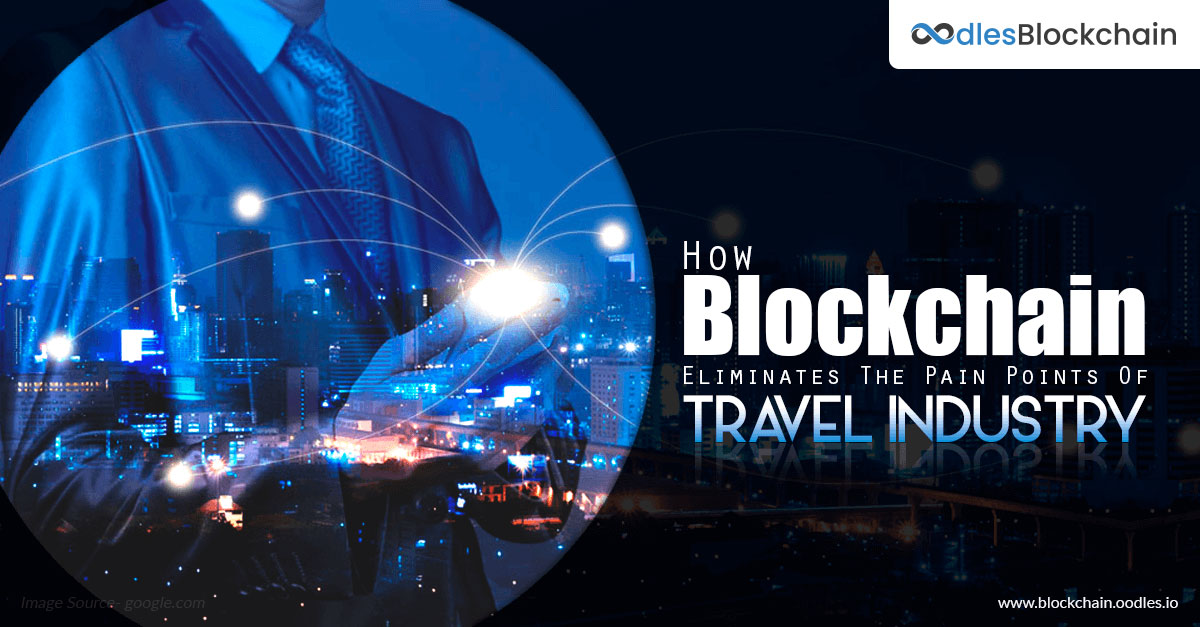-
There is merely any sector left untouched by the blockchain technology. The latest industry that can be potentially influenced by it is Fintech. Finance technology landscape is in limelight for adopting the blockchain technology, but this is just the tip of the iceberg. Even Blockchain enthusiasts know that its practical uses are not limited to Fintech. These blockchain supporters have not turned their attention to one industry i.e travel. And this is the one industry that routinely copes with many paint points. But blockchain-based applications has the potential to prove to be a panacea for the travel industry.
Here I am elaborating some of the significant problems of the travel industry and the role of Blockchain in solving those issues:
1. Overbooking
Overbooking seems so frustrating when you are a flyer who has been affected by it. Once, an incident of overbooking had occurred where a passenger was forcibly removed from an overbooked United Airlines flight. Blockchain can cure this type of issues of double booking in the airline industry, just because it is capable of preventing double spending.
2. Identity
A large section of world's population is still not a part of the global economy.
Decentralization through crypto economics will allow billions of people to gain access to basic financial services and connect them to the rest of world. To provide every person with an opportunity to travel, the technology would provide a mean of verifying their identity without fearing the identity theft and any change in data and hence, verifies a traveler's reputation with its digital identity systems.
Although, there are identity systems in use for authenticating a user's real identity such as federated identity and social login. But federated identity systems create a centralized system and are vulnerable to attacks. On the other hand, decentralized identity systems can fix this and enable a consumer to verify himself with a digital identity. With the decentralized nature of blockchain, customers will get a relief from waiting in long queues at the airports. Plus, they need not face struggles of going to multiple checkpoints.
3. Traveler Profiles
While Blockchain is very much about transferring values, managing and securing data in best ways, in the traveling landscape, the security and privacy of a user profile are extremely important. If a firm enters into an agreement with an airline, a travel management company (TMC), or any other organization, the company have to give that supplier the access to employees data so they are able to provide the expected services.
No matter whether the process is manual or automated one, it will require much time and efforts to create a well-functioning profiling process. But when employees' data is on the blockchain, it will remove the struggle on both sides. Also, employees do not have to create user accounts with numerous suppliers. This work involves the risk of data breaching. Thus, blockchain creates just one unified profile. Only the people in the blockchain network or who are given access can see the profile.
4. Smart contracts
A smart contract is an agreement that has some defined rules that are codified and stored in the blockchain network. So if the required conditions are met, certain actions will be executed automatically.
In the travel industry, blockchain-based smart contracts are useful in a number of areas such as payments, luggage handling, ID, and concluding deals. They are very beneficial for the travel industry as they are faster, cheaper and remove the middlemen(intermediary). Smart contracts build trust between two parties.
Besides, they are secure due to cryptography. All the legal documents are in encrypted form in a shared ledger. Thus, there’s no way to modify it.

Our Offices
INDIA
Emaar Digital Greens, Sector 61,
Gurugram, Haryana
122011.
Welldone Tech Park,
Sector 48, Sohna road,
Gurugram, Haryana
122018.













